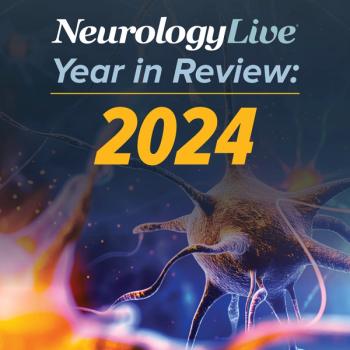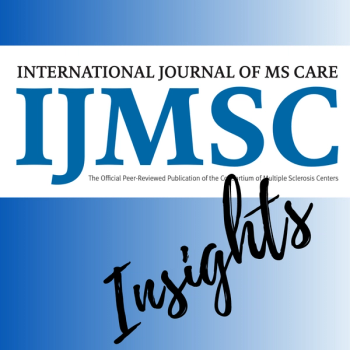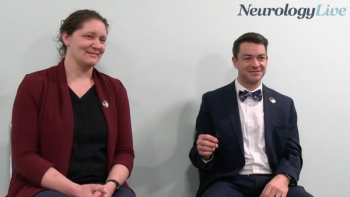
Imlifidase-IVIg treatment led to faster disability improvement (3 weeks) and earlier independent walking (6 weeks) compared to IVIg alone.

Imlifidase-IVIg treatment led to faster disability improvement (3 weeks) and earlier independent walking (6 weeks) compared to IVIg alone.

The director of the Corinne Goldsmith Dickinson Center for MS at Mount Sinai talked about the shift in multiple sclerosis diagnostics from rigid classification systems to a dynamic, spectrum-based approach focused on biological phenotyping. [WATCH TIME: 5 minutes]

Novartis plans to present OAV101 IT data at a 2025 medical meeting and share results with regulatory agencies, including the FDA, to support approval for patients with SMA in need.

Capricor may qualify for a priority review voucher from the FDA if deramiocel receives marketing approval for the treatment of Duchenne muscular dystrophy.

As part of NeurologyLive®'s Year in Review, we've compiled the most-listened episodes of our biweekly podcast, Mind Moments®.

As part of NeurologyLive®'s Year in Review, we've compiled the most-watched interview clips that appeared on the website in 2024.

As part of NeurologyLive®'s Year in Review, take a look at our most-read news in neuromuscular disorders in 2024.

As part of NeurologyLive®'s Year in Review, take a look at our most-read news stories in Alzheimer disease and dementia in 2024.

As part of NeurologyLive®'s Year in Review, take a look at the most-read news articles on our site in sleep disorders in 2024.

As part of NeurologyLive®'s Year in Review, take a look at our most-read news in multiple sclerosis in 2024.

As part of NeurologyLive®'s Year in Review, take a look at our most-read news in movement disorders in 2024.

As part of NeurologyLive®'s Year in Review, take a look at our top news articles in headache and migraine in 2024.

As part of NeurologyLive®'s Year in Review, take a look at our most-read news in stroke and cerebrovascular disease in 2024.

As part of NeurologyLive®'s Year in Review, take a look at our most-read news in epilepsy and seizure disorders in 2024.

Mind Moments®, a podcast from NeurologyLive®, brings you a review of 2024, with insights from Daniel Ontaneda, MD, PhD; Ian Kremer; Andy Berkowski, MD, PhD; Sameea Husain-Wilson, DO; Jonathan Parker, MD, PhD; and Lawrence Robinson, MD. [LISTEN TIME: 25 minutes]

These were the most-read FDA approval stories that were part of our coverage in 2024, brought to you as part of NeurologyLive®'s Year in Review.

As part of NeurologyLive®'s Year in Review, we've compiled the top coverage stories from 2024 across a variety of different neurological conferences the team either attended or covered virtually.

As part of NeurologyLive®'s Year in Review, we've compiled the most-read feature-length stories that appeared on the website in 2024.

With new revisions of the MS diagnostic criteria being made, clinicians highlighted key updates and the broader implications it has for diagnosis, treatment, and healthcare practices worldwide.

The complement system is critical in immune defense and tissue homeostasis, but its dysregulation can contribute to autoimmune neurological disorders and neurodegenerative diseases like Alzheimer, ALS, and multiple sclerosis.

Vatiquinone, a small molecule inhibitor, demonstrated its efficacy and safety across a range of age groups with Friedreich ataxia, with effects seen on disease progression and specific subscales of the mFARS.

IJMSC Insights offers a closer look at the latest research and the people behind it from the community of the International Journal of Multiple Sclerosis Care (IJMSC) and the Consortium of Multiple Sclerosis Centers (CMSC).

As new treatments become available, it may be essential to achieve a timely and accurate diagnosis to enable patients and their family to make informed decisions and retain the greatest level of autonomy.

Adults with obstructive sleep apnea who receivied tirzepatide achieved an average of up to 20% weight loss and experienced at least 25 fewer breathing interruptions for each hour slept.

The professor of neurology at University of Florence talked about a study presented at ECTRIMS 2024 that validated definitions of progression independent of relapse activity in early relapsing MS. [WATCH TIME: 5 minutes]

Here's some of what is coming soon to NeurologyLive® this week.

Since the Syn-One Test only needs a small punch skin biopsy that can be collected in an office setting, the clinical utility can be enhanced to offer more geographically convenient access for patients earlier in the disease.

A duo of experts discussed the importance of addressing barriers such as provider comfort, access to genetic counselors, and insurance coverage to reduce diagnostic latency and standardize genetic testing for epilepsy. [WATCH TIME: 5 minutes]

Test your neurology knowledge with NeurologyLive®'s weekly quiz series, featuring questions on a variety of clinical and historical neurology topics. This week's topic is on CGRP medications to treat migraine.

The investigational therapy was safe, well-tolerated, and showed promising improvements in cognitive measures among patients with dementia with Lewy bodies.